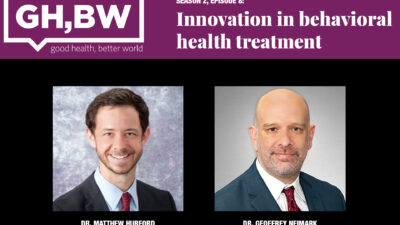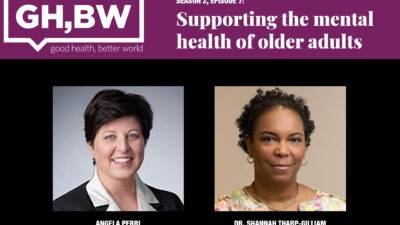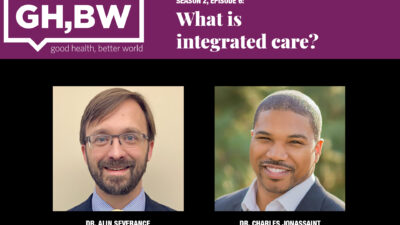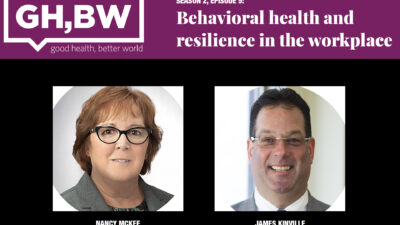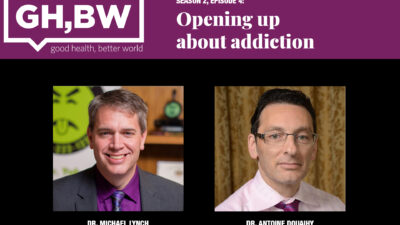What is now the Neighborhood Resilience Project grew out of a ministry that offered food, clothing, and emergency relief to people a decade ago. Located in Pittsburgh’s Hill District neighborhood, the Rev. Paul Abernathy leads the faith-based nonprofit with the approach of healing trauma-affected communities.
In Episode 1 of the Good Health, Better World podcast Rev. Abernathy discusses what led him to this work and how improving long-term health requires community partners. Here’s part of his conversation with host Ellen Beckjord.
Can you tell us a little bit about the Neighborhood Resilience Project and how it began?
I learned quickly that really that the greatest challenge was just the massive amounts of trauma that we as a community were facing. And it’s not just the personal trauma, but multi-generational trauma.
The impact has greatly undermined attempts to really develop our community. It’s not enough to create opportunity. We have to get people so that they are healthy enough to sustain opportunity.
I’m a veteran of the Iraq War. I’ve often said I’ve seen more post-traumatic stress disorder in my own community than I ever saw when I was in the Army. Many of our underserved communities have been through gun violence. It is poverty. It is the lack of opportunity. It is evictions.
All of this has severely impacted our community. The Neighborhood Resilience Project emerged from these conversations about how we develop our communities. We say trauma-informed community development. And by that we’re about moving from a trauma-affected community to a resilient healing and healthy community.
This is the crux of our work.
How do we support healing and trauma-affected communities? How do outside entities build trust, and how do you think trust can be earned?
Trustworthiness is one of the trauma-informed principles. This is a key aspect of healing and working, to build trust. The most important thing I think that I’ve learned about trust is that it’s got to be demonstrated.
When we listen, we have got to be prepared to act, which in our work around trauma-informed community development, these listening sessions are to make sure that whenever we go in, we have the framework and the resources to make something happen.
You use the phrase, social determinants of health, but as you’re saying, all of these things are within our reach to change, right?
That’s absolutely right. Ultimately, people in these communities are really the agents of change. And that’s one of the things that’s very important as we understand resilience, because in the history of the United States, some communities that have a lot stacked against them.
Social determinants of health create extreme adversity in these communities, and at the same time, there are many people who despite this adversity have found a way to thrive and are committed and continue to be committed to building community. And we really (have to) build that, developing that resilience, that can be a way to leverage this resilience.
Listen to the rest of the conversation on the Good Health, Better World podcast.
Learn more about the Neighborhood Resilience Project.
Learn more about the UPMC Center for Social Impact.
For more information on Freedom House 2.0, an EMT and community health worker training program, brought to you by the Neighborhood Resilience Project and UPMC, contact [email protected] or apply now.
This interview was edited for clarity and brevity.



